University of Houston Professor Dedicates Life to Preserving Latino Works
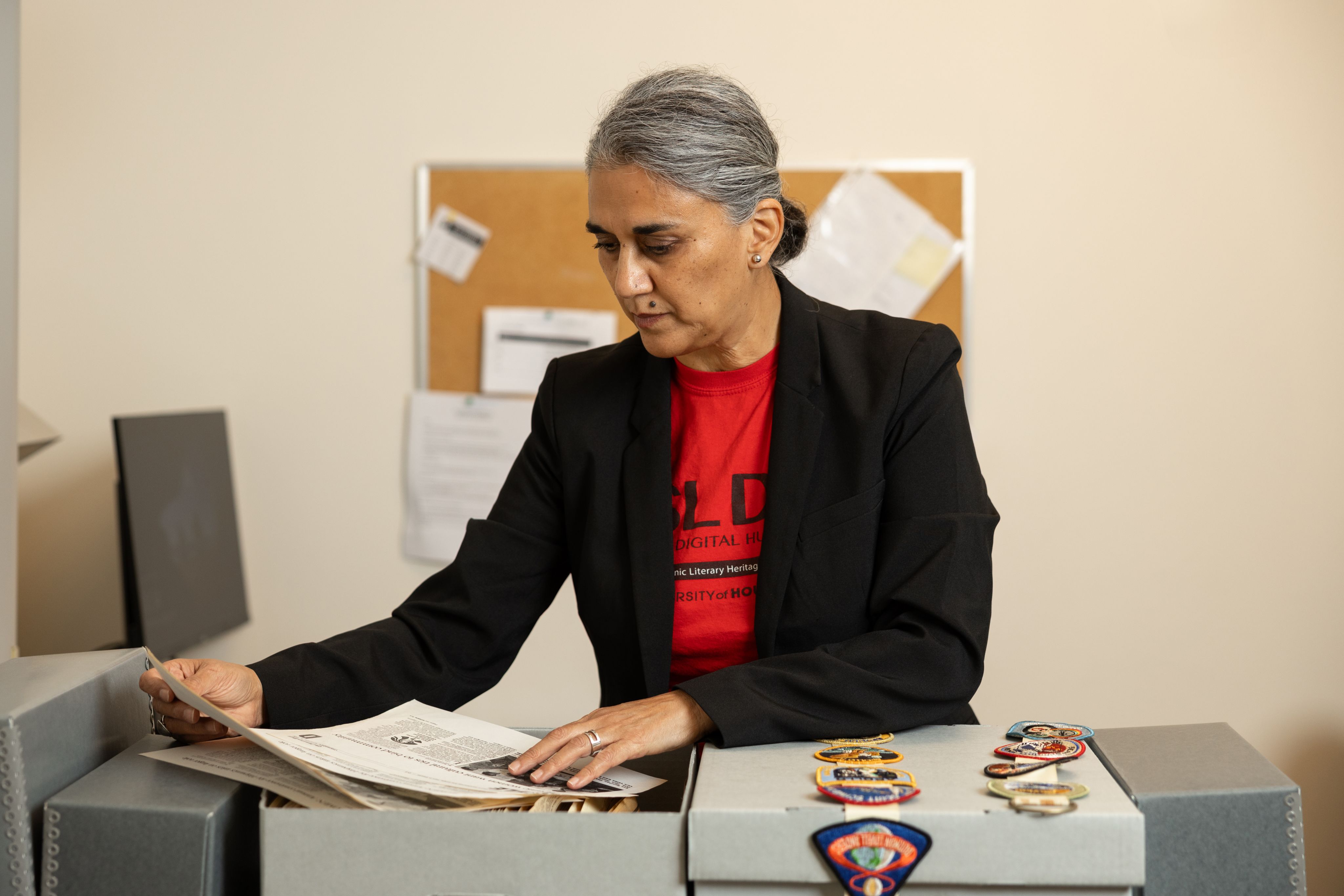
When it comes to Latino and Hispanic culture, Gabriela Baeza Ventura can find meaning in the seemingly mundane.
Baeza is professor of Hispanic Studies at the University of Houston, but she also serves as director of Recovering the U.S. Hispanic Literary Heritage, which aims to preserve literary works from Latino authors that were published from colonial times up until 1980.
As well, she preserves artifacts such as patches and aprons in this role, and she said it’s objects like these that tell their own story of Latino history.
“We were entrusted with a Bible from State Representative Christina Morales. It was the Bible her grandmother kept at her bedside,” Baeza said. “In it, her grandmother put important documents and things from different events she attended, so we found invitations, photographs, death cards and newspaper clippings.”
In addition to recovering artifacts like this, Baeza publishes modern works from Latino authors in her role as deputy director of Arte Público Press, a UH-affiliated publisher of literary works by Latino and Hispanic authors.
And by this time next year, her role at Arte Público Press will change when she takes over as director from Dr. Nicolas Kanellos, who founded the organization in 1979.
When she officially takes on the new role, her goal will be to continue the recovery work Kanellos started by implementing a digitization strategy that will bring recovered works – as well as 3D scans of the objects she’s taken in – to everyone’s fingertips.
“People often refer to Arte Público as Houston’s best-kept secret, and that’s really hurtful,” she said. “The last thing you want tied to a book is for it to be a secret. It needs to be read by as many people as possible so we can break down some stereotypes about who Latinos are and begin to see how complex our communities are.”
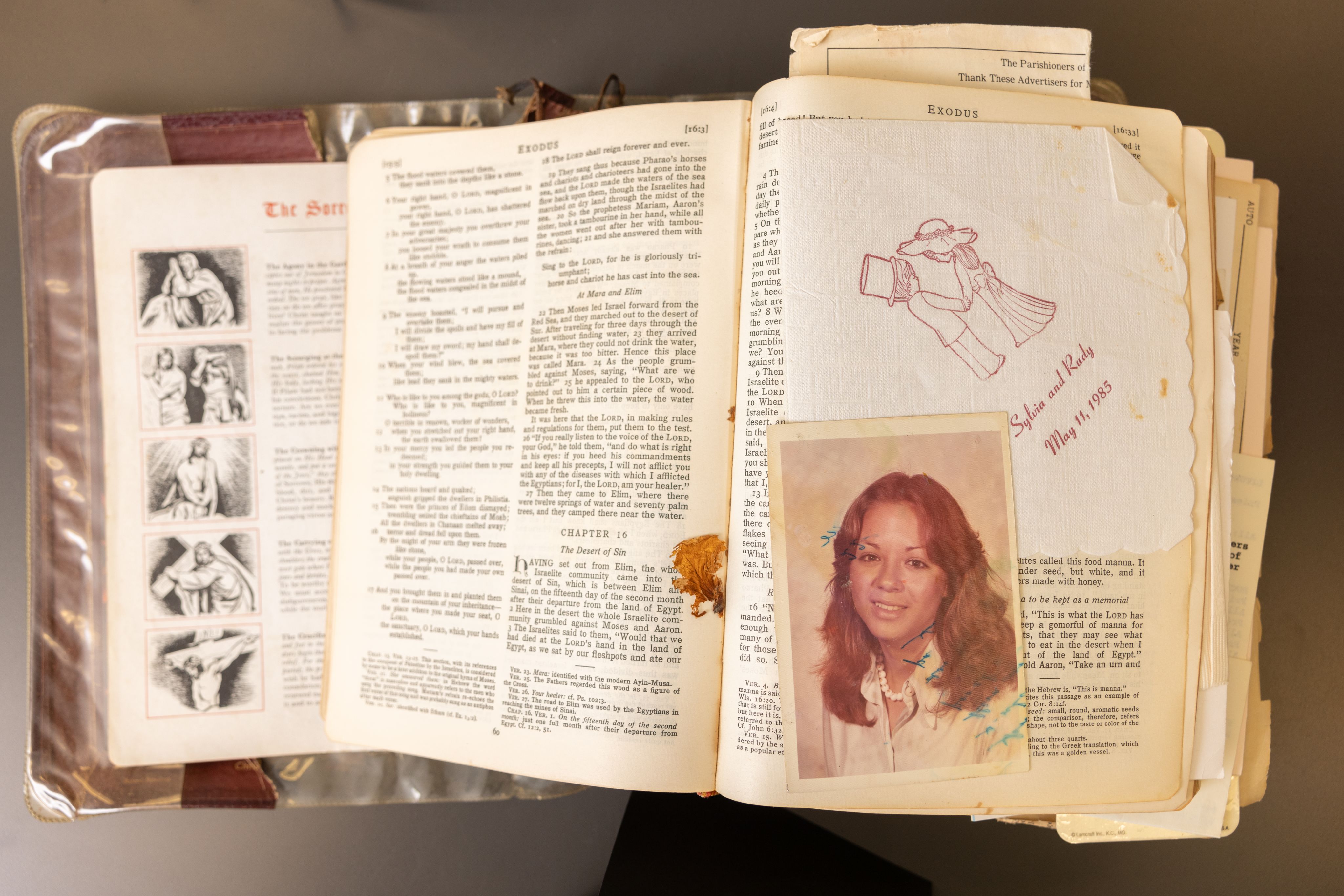
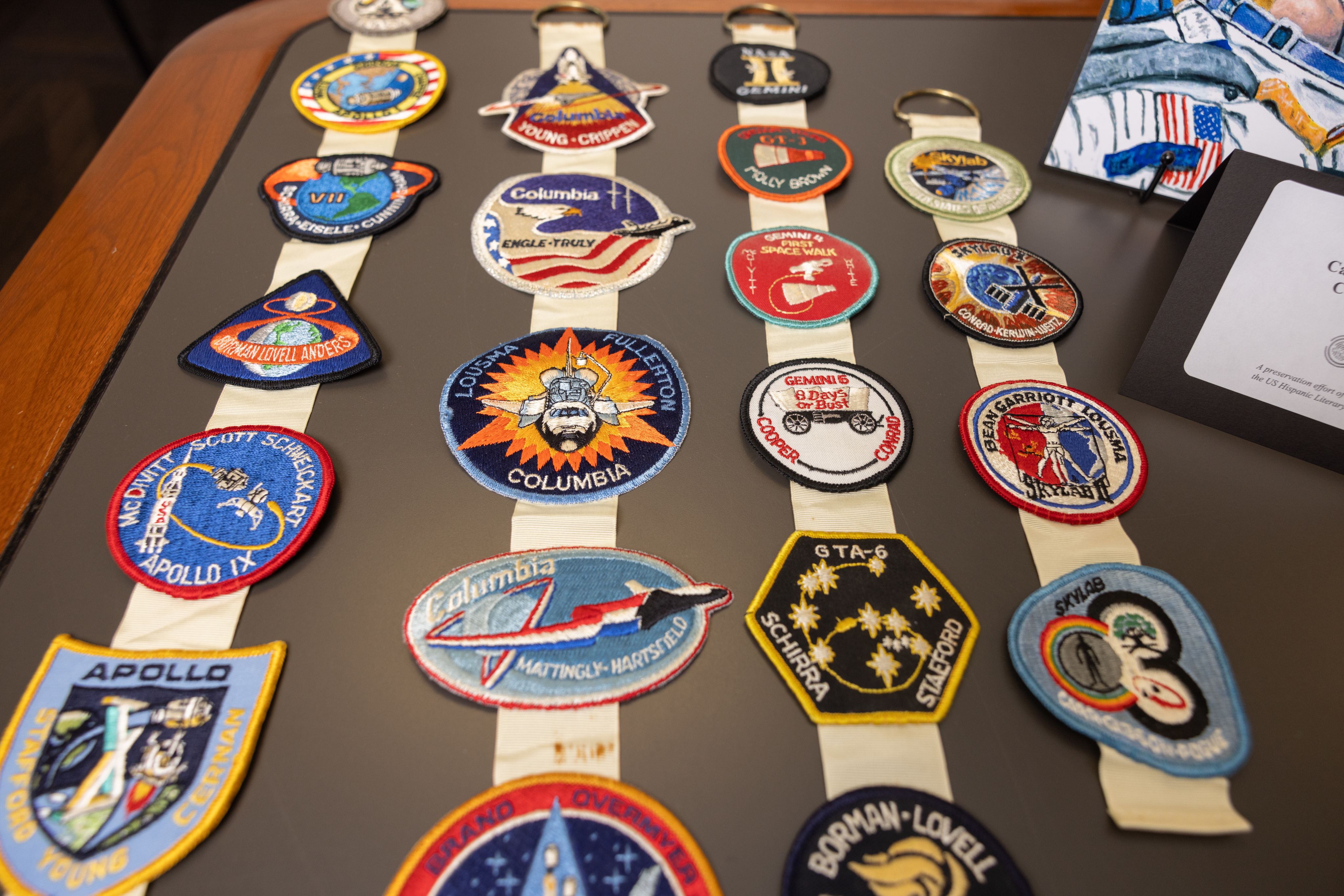
“People often refer to Arte Público as Houston’s best-kept secret, and that’s really hurtful. The last thing you want tied to a book is for it to be a secret.”
What is Arte Público Press?
It’s the premier publishing house of Latinos.
It started out as a magazine called Revista Chicano-Requeña, and we aim to create a space where Latinos can publish their work in the U.S. We publish fiction, nonfiction, and children’s books.
Latinos can publish in English, Spanish and Spanglish about their history, their culture, or anything they want to write about.
Why is it important to have English, Spanish and Spanglish?
We want to develop a sense of belonging. When Kanellos created the Revista Chicano-Requeña, it came at a time when there were very few spaces where Latino creative writers could have a place where they could publish and come together to meet each other.
The goal was to respect the skills and language that our communities show up with. If we are not outspoken about including Spanglish, our community will feel if their characters are not using fluent English or fluent Spanish, then they will not be published.
We want to make sure the books are as authentic as possible.
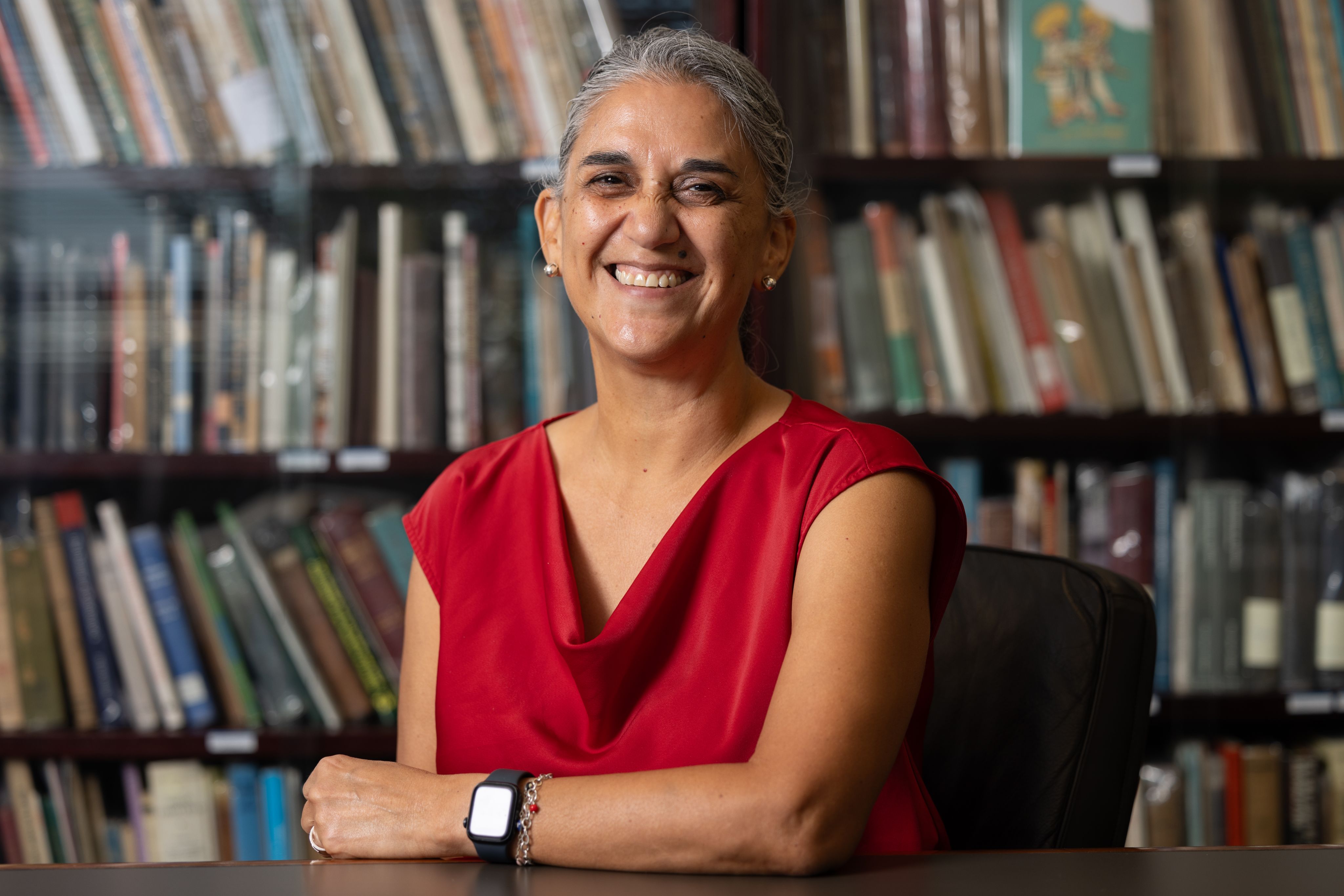
“For a long time, Latinos didn’t have a space in museums or special collections. We want to make sure there’s a place for them.”
A big part of Arte Público is preserving literature and other Latino artifacts. Can you talk about that process?
The recovery work we do isn’t just about recovering literature; it’s also about recovering artifacts from Latino communities around the United States.
Oftentimes, those artifacts come to us after we do presentations. People will say, “I heard you present, and I have these newspapers,” or books, or patches that are tied to stories we presented.
We want those artifacts. We’ll have them brought to Arte Público and digitize it. We’re in the process of working with the University of Houston so we can make 3D scans of artifacts, then we transfer them to special collections.
The importance of having those artifacts at Arte Público is it allows us to share them and make them available to the public. They’re not behind a closed door with locks and all that. When students and teachers – anyone who is interested in seeing them – want to see them, we can bring them out and let them see them under the watchful eye of the archivist.
For a long time, Latinos didn’t have a space in museums or special collections. We wantto make sure there’s a place for them.
What is the struggle of finding these artifacts?
The greatest struggle would be helping our community understand these items are valuable. We have many cases where some families have thrown stuff away because they didn’t think those items were of value. We’re constantly told Latinos are being erased from historical, literary and social records. We need people to feel like they belong.
That’s why developing this sense of belonging is so important to me. If we don’t remind people that their materials matter, then that’s when it makes it hard to find things and history gets erased.
If an elder has been holding onto something for a long time and leaves it to their children or their grandchildren, and they don’t have the space to hold it anymore – or they lost the connection or don’t understand the story … then the item loses its value.
That’s when we come in and explain why something is important.
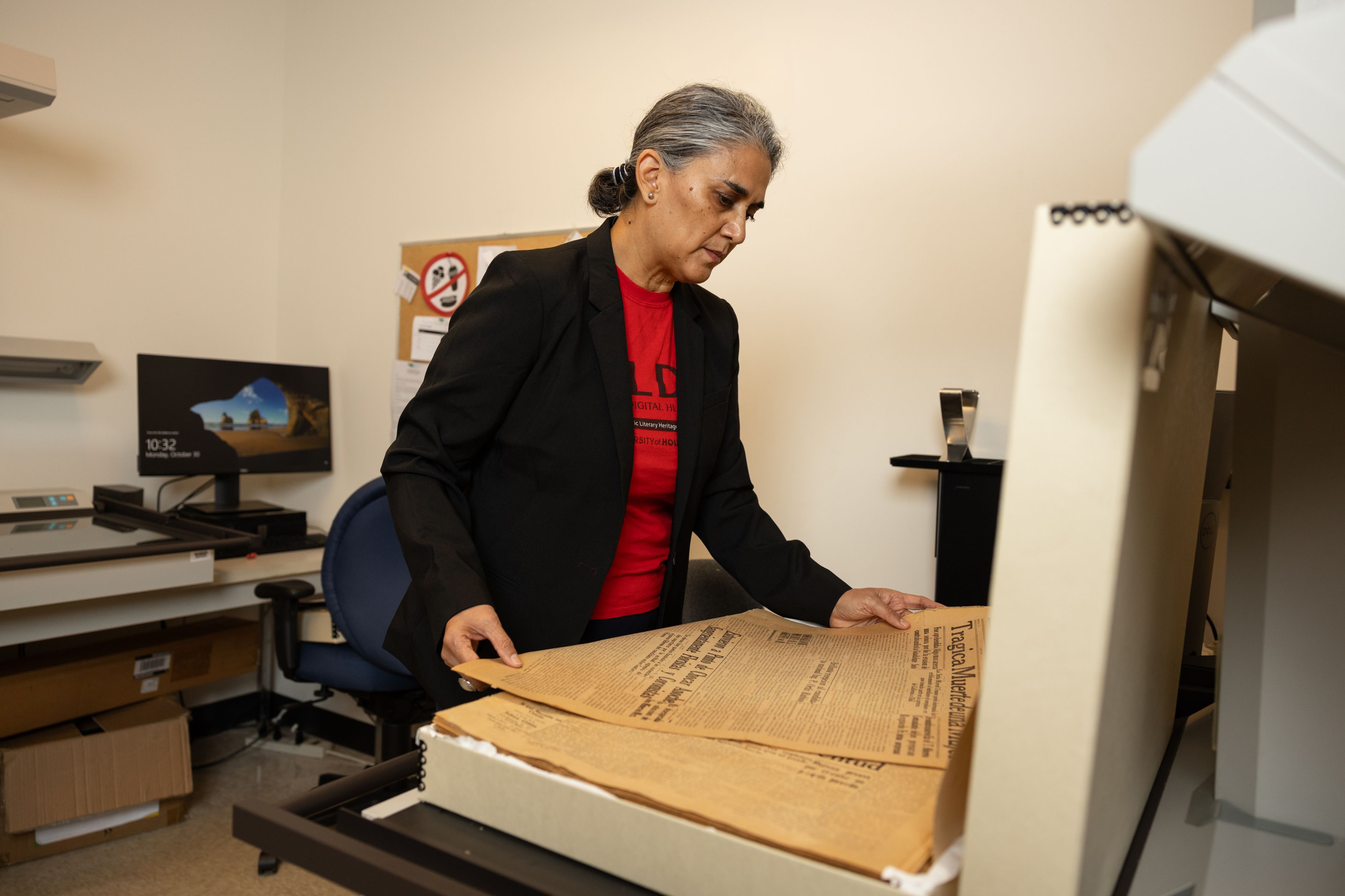
Arte Público Press hosts an annual recovery conference, which invites archivists, librarians, linguists, historians and others to share the legacy they are preserving. The conference also features a theme that highlights Latino culture.
The date and location for next year’s conference has not been decided; however, those interested in keeping track may sign up for Arte Público’s newsletter.

